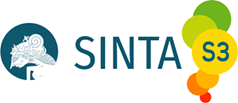Analisis Kemampuan Berpikir Kritis Siswa dalam Menyelesaikan Masalah Matematika Berbasis Etnomatematika
DOI:
https://doi.org/10.33394/mpm.v13i1.12549Keywords:
Critical Thinking, Problem Solving, Ethnomathematics, Dam-damanAbstract
Mathematics is one of the branches of science that continues to develop to meet human and technological needs. This means that students must improve their ability to think systematically, analytically, logically, critically, and creatively. The main problem in this study is how to describe students' critical thinking skills in solving math problems through the ethnomathematics approach. The purpose of this study is to describe students' critical thinking skills in solving math problems using the ethnomathematics approach, which combines mathematical materials with their local culture. This research uses a qualitative descriptive approach with research instruments in the form of tests and interviews involving data analysis from interviews and test answers. The results showed that high ability students (KT1 and KT2) met all four indicators, namely interpretation, analysis, evaluation, and inference. Students with low ability (KR1 and KR2) only fulfill two indicators, namely analysis and interpretation. This study also shows that the traditional game of dam-daman is effective in describing students' mathematical ability to think critically. To help low-ability students fulfill all critical thinking criteria, further research is needed.
Downloads
Published
How to Cite
Issue
Section
Citation Check
License
Authors who publish with this journal agree to the following terms:
- Authors retain copyright and grant the journal right of first publication with the work simultaneously licensed under a Creative Commons Attribution License that allows others to share the work with an acknowledgement of the work's authorship and initial publication in this journal.
- Authors are able to enter into separate, additional contractual arrangements for the non-exclusive distribution of the journal's published version of the work (e.g., post it to an institutional repository or publish it in a book), with an acknowledgement of its initial publication in this journal.
- Authors are permitted and encouraged to post their work online (e.g., in institutional repositories or on their website) prior to and during the submission process, as it can lead to productive exchanges, as well as earlier and greater citation of published work (See The Effect of Open Access).
Â













